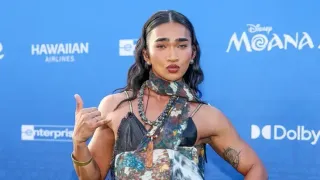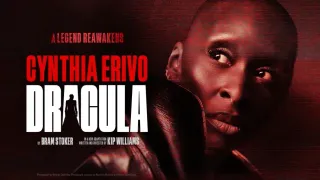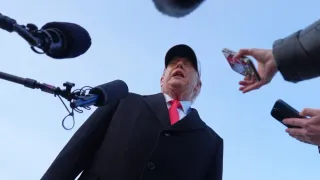May 31, 2022
Jack Fritscher's 'Profiles in Gay Courage'
Hank Trout READ TIME: 4 MIN.
Any new book about San Francisco by Jack Fritscher is cause for celebration. Since first arriving in the City in 1961, he has written dozens of books about local gay-and-leather pop-culture.
In 1977, he became the founding San Francisco editor-in-chief of Drummer magazine. His "Some Dance to Remember: A Memoir-Novel of San Francisco 1970-1982" is a peerless record of outrageous life on Castro and Folsom before "the Titanic 1970s crashed into the iceberg of AIDS." Even his memoir of his lover Robert Mapplethorpe, "Assault with a Deadly Camera," examines the life of the New York artist in San Francisco.
His newest book, "Profiles in Gay Courage: Leatherfolk, Arts, and Ideas, Essays and Interviews," is an illustrated collection of thirteen essays celebrating "authentic leatherfolk founders, icons, and superstars too often under-reported by gatekeepers of gay-history timelines."
At Drummer on Divisadero Street, Fritscher worked with gay pioneers from Mapplethorpe to Thom Gunn, San Francisco's "Poet Laureate of Leather."
Others from that Drummer Salon in this memoir include Cynthia Slater, founder of the BDSM Society of Janus; Wally Wallace, New York Mineshaft manager; Sam Steward, the "godfather of gay writing"; Ed Parente, art director for Wakefield Poole's films; David Hurles, the SoMa photographer of rough trade for Old Reliable Video; Rob Meijer, aka leather couturier RoB of Amsterdam who dressed the Folsom Fair; Roger Earl and Terry LeGrand, filmmakers of the 1975 leather classic "Born to Raise Hell," and Tennessee Williams. This book about these talents is clearly a labor of love.
"Profiles" opens with Walt Whitman's: "Give me now libidinous joys only!" We know immediately we are entering the landscape of passion that Jack has mapped throughout his career.
Personally political
The first essay, "Robert Mapplethorpe," begins with the main theme of Jack's preservationist work. "The pre-AIDS past of the 1970s has become a strange country... It has no more memory than the remembrance we give it, and we give remembrance here."
Mapplethorpe entered Jack's life in 1977 when, seeking recognition beyond Manhattan, he showed up at the Drummer office and unzipped his portfolio. Jack hired him to shoot the cover of Drummer 24. Soon after, Mapplethorpe had simultaneous San Francisco exhibits: one in Union Square for his polite pictures, and one in SoMa for his leather pictures.
"Profiles" details dramatic scenes of Mapplethorpe shooting San Francisco leatherfolk Jack recruited. Prime among the stars is Cynthia Slater, who introduced sex-positive women into male play spaces like the Catacombs fisting palace on 21st Street.
Presenting Berkeley author Samuel Steward, whom he met in 1969, Jack reviews Justin Spring's biography of Sam, "Secret Historian." Steward, friend of Gertrude Stein and Alice B. Toklas, wrote as 'Phil Andros' and tattooed as 'Phil Sparrow' in his Oakland parlor, where he inked James Dean and some 150,000 men, primarily Hells Angels and young sailors. Jack's affection for Steward is palpable.
Similarly affectionate portraits emerge around Tennessee Williams, poet Thom Gunn, and La Diva Slater, who dated his brother. His Williams essay, "We All Live on Half of Something," first appeared in a 2001 Playbill for Williams' "Something Cloudy, Something Clear," which was shut down by the terrors of 9/11.
Jack knew and interviewed Williams, who changed the gay gaze. "In Stella's 'Stanley,' Williams and Brando launched a new postwar torn-T-shirt standard of masculine beauty. Their rough-trade blue-collar male sex appeal sold tickets and liberated pop culture's gaze at men in the conformist 1950s."
This essay on Williams also offers a useful perspective on art and entertainment: "Entertainment gives you what you expect and does not disturb you. Art snaps you around with disruptions you don't expect, and you exit the theater changed."
Jack's essay on poet Thom Gunn unwraps their meeting in 1969 and their years of friendship. Reaching into Gunn's poetry and into memories of traveling with Gunn, Jack paints an intimate portrait of his friend, the British poet who, in 1954, emigrated in full leather from the UK and became a gay icon in San Francisco. Jack is alert to the nuances in Gunn's poetry and clear-eyed about Gunn's drug use, which killed him in 2004.
I have followed Jack's writing since the 1970s, when I was coming out into leather and bought my first issue of Drummer. So I'm rather acquainted with his knowledge of the leather community, his muscular prose style, his wit, and his commitment to preserving gay history.
Yet, familiar as I am with Jack's writing, "Profiles" astonished me with its depth of feeling and its sincere reconstruction of that glorious, heartbreaking Golden Age before AIDS. It may make readers who lived in the 1970s nostalgic. Younger readers may wish for teleportation to those days and nights of "libidinous joys only!"
Much more than nostalgia for our auld lang syne, in future, "Profiles in Gay Courage" will serve as an invaluable eyewitness resource for anyone researching gay history of the 20th century.
Paperback $24.95 at most book sellers; and readable for free at www.jackfritscher.com
Help keep the Bay Area Reporter going in these tough times. To support local, independent, LGBTQ journalism, consider becoming a BAR member.






